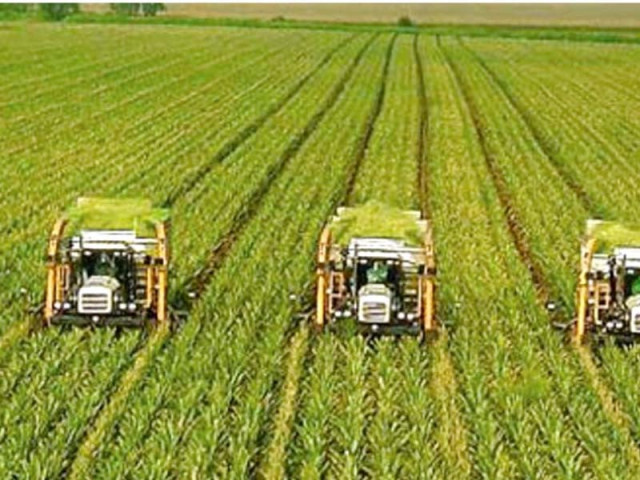Agriculture sector overlooked in FY25 budget
Farmers face uncertainty as federal allocations drop amid rising costs, growth concerns

The savior of Pakistan’s economy for FY24, the agriculture sector, only managed to attract Rs5 billion for the next fiscal year from the incumbent government. During his budget speech on Wednesday, Finance Minister Muhammad Aurangzeb said that agriculture is the main pillar of Pakistan’s economy, contributing 24% to GDP and 37.4% to employment generation. The country’s food security and manufacturing depend on this sector, which possesses enormous export potential.
The prime minister announced the Kissan Package in 2022, introducing a markup and risk-sharing scheme for farm mechanisation. “For the next fiscal year, Rs5 billion has been allocated for this scheme,” Aurangzeb stated. He further noted that this allocation would facilitate financing for planters, tractors, threshers, harvesters, and mobile grain dryers, boosting farm output.
According to the Economic Survey of Pakistan, the agriculture sector showed strong growth of 6.25% during FY24, with all major crops surpassing anticipated production and posting a growth of 11.03%. However, the farmer community continued to face issues throughout the fiscal year due to the non-availability of overpriced input materials and ever-rising energy costs. For the next year, farmers are not optimistic, believing that many may not be able to purchase necessary farm inputs to cultivate crops.
“The purchasing power of a farmer is at an all-time low; there are many factors behind this. How will they manage finances to grow their next crop?” asked President Kissan Board Pakistan, Sardar Zafar Hussain Khan.
Farmers across Punjab are already facing significant losses on their wheat crop, as the government is not purchasing it and open market prices have crashed due to an influx of excessive wheat stocks. “This year, agriculture growth was more than 6%. Why is the government setting next year’s growth target at only 2%? They know that farmers will not be able to purchase urea, pesticides, etcetera, which is likely to result in low production in the next sowing season,” Khan said.
Unfortunately, farmer lobbies in Pakistan are not strong, and over 60% of public representatives in parliament are currently not concerned with farmers’ issues. “There is a high chance that Pakistan may face a food security issue in the coming years if farmer issues are not resolved,” he added.
While there is widespread disappointment with the measures taken by the federal government for the next fiscal year in the agriculture sector, some industry stakeholders think that the federal government might now throw the ball in the court of provincial governments to announce heavy agriculture budgets.
Many believe that the ongoing fiscal year’s allocations for the agriculture sector were much higher, where the same government under the cover of the Pakistan Democratic Movement increased the amount of the Kissan Package from Rs1,800 billion to Rs2,250 billion. The previous government believed that through the package, some Rs2,000 billion was shifted to the rural economy for further crop improvement.
However, this year’s lack of allocations for subsidies may lead to more problems for ordinary farmers in purchasing fertiliser, pesticides, etc. “The agriculture sector is completely ignored in the federal budget,” says Federation of Pakistan Chambers of Commerce and Industry (FPCCI)’s Agriculture Panel Chief Ahmad Jawad while speaking with Express Tribune.
He said, “We were expecting that in order to double the agriculture production, the government would go the extra mile, but no measures were announced in the budget speech. I think the federal government has totally handed over the agriculture allocation to the provinces.”


















COMMENTS
Comments are moderated and generally will be posted if they are on-topic and not abusive.
For more information, please see our Comments FAQ